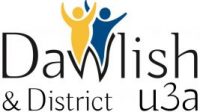
Discussion Group – March/April 2022
The Discussion Group met on Monday 24th March, having had to cancel the previous meeting with members otherwise engaged over half term. We had a good turnout this time, welcomed Mike Collins as a potential new member and Catherine who hasn’t been able to attend for a while. We carried forward the topic of how to fund the BBC, something we decided on before Nadine Dorries’ widely reported comments on the topic. There was a lively exchange of views and lots of interesting contributions.
The BBC has a royal charter to provide a service and this is due to expire on 31st December 2027. The government has promised that until that date all monies raised from the license fee will be handed to the BBC, £3.75 billion in 2020/21.
Public service broadcasting, including ITV, and Channels 4 and 5 as well as the BBC, was generally agreed to be necessary. The BBC, the focus of our meeting, was felt to be a particularly trustworthy source of news, and through TV, its internet presence and radio, including the World Service had an unparalleled coverage. There was less agreement over how, and who, the entertainment, education, culture and sport coverage should be chosen by, to complete the public service broadcasting remit.
We talked of various options which might be available to replace in whole or part the license fee, for example an addition to council tax (all would pay, but wealthier households more), general taxation (as in Ireland and the Netherlands, where complaints of government control are made), advertising (which would compete with ITV), taxing media giants such as Netflix and Disney , and making the BBC a subscription service. We didn’t seek to reach any conclusions, and no solution presented itself as an obvious choice. The current license fee is criticised to being subject to government pressure so far as the level of the fee is concerned, but other options often have the similar flaws.
The BBC was described, memorably, as being relentlessly middleclass, like Waitrose, by one member. This led to an interesting, if not totally pertinent discussion as to whether the middle or working classes provided the driving force for change in society. We further diverted ourselves with a brief consideration of state broadcasting of the current war in Ukraine by Russian and Ukrainian sources. Russian reports were clearly false, but some Ukranian reports could understandably have a propaganda element.
The area of sports broadcasting was given a good airing; there were a large number of important occasions in many different sports, not all of which could be covered by free to air broadcasters, and how those to be broadcast were picked was talked about. Some consideration was given to the sums paid to presenters, but less agreement on who was worth what.
BBC Radio was generally admired, the variety being unavailable elsewhere, and particular mention was made of the World Service. After considering seven possible funding options there was no consensus on the best one, and the members retired, exhausted by their deliberations.
It was decided to discuss trans issues next time, and the convenor is already stressed.
Michael Heyden, Convenor.
Please note that the views expressed by the Discussion Group may not represent those of the wider Dawlish and District membership.
